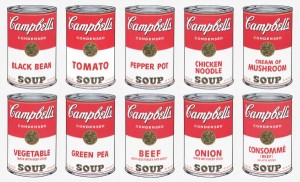 After some reflection and consideration of the pretty well-made arguments against my last post on Sensing Murder, I now have a bit more understanding of and sympathy for the position of those who are so infuriated and offended (thanks, Tony, Keir, Andrew and others). While I still think the difference between psychics and other sorts of entertainers is one of degree rather than kind, I accept that it’s a pretty big difference of degree, and that matters.
After some reflection and consideration of the pretty well-made arguments against my last post on Sensing Murder, I now have a bit more understanding of and sympathy for the position of those who are so infuriated and offended (thanks, Tony, Keir, Andrew and others). While I still think the difference between psychics and other sorts of entertainers is one of degree rather than kind, I accept that it’s a pretty big difference of degree, and that matters.
I wonder if there’s a correlation between those who object most strenuously to shows like Sensing Murder and those who generally bemoan the falling standards of entertainment and current affairs, and particularly the rise and proliferation of reality TV formats, and the consequent “realitisation”, if I may coin the term, of other genres. I’m thinking, here, of shows like Lost, which started out basically as a fictional version of Survivor; and 24, which is basically a video game in serialised form; the talking-head rent-a-quote instant-experts which predominate in news and current affairs programming; and the reality-esque coverage of media heroes and antiheroes like Clayton Weatherston and David Bain.
I reckon there would be, and I reckon that no small portion of the reason people hate on Sensing Murder so much is because it represents the most egregious example of this trend toward manufactured verité — in entertainment, in real life, and in how real life is presented to us. In this, it’s just another example of “resisting the decline” of society, which happens to an extent every generation.
I should hasten to add that I think it’s important that the decline be resisted — but by the same token I think it’s important that the reasons for resisting it be clearly stated and understood. But here’s another thing: while there is undeniably a great deal of dreck in the reality TV ouvre, and a significant amount of bland mediocrity, has the move genuinely brought nothing of value? The most venerated examples of the reality genre — Survivor for one; Idol and so on for another — have given zillions of people a great deal of pleasure, and now form a pretty central part of our* culture. I have a particularly soft spot for Survivor since it’s essentially just a big ball o’ political, social and psychological theory implemented in a handy ritualised narrative form.
In case you think I’m a trendy hipster libertine, I do personally disdain a huge amount of pop-culture — but not to the extent that I wish its absence on others who are into that sort of thing. That’s where I draw the line with Sensing Murder: let those who have been duped of money or faith complain to the small claims tribunal, or Fair Go, or the Advertising Standards Board, or the Commerce Commission. Let those who dislike the programme turn it off, and voice their disapproval to TVNZ and the show’s producers. Let those who object to public money being spent on it, and to the Police becoming involved in it make their objections known strongly, but let it all be done in the knowledge that some folk want it anyway and are willing to pay for it, even if it is all faked (and, deep down, they know it).
Last generation’s trash is this generation’s treasure; and vice versa. So it has ever been. This is part of what it is to live in a liberal society. Is it not?
L
* Permit me this generalisation, since I don’t want to write, nor (I am sure) do you want to read, yet another awkward definition of the “self” in this context.
